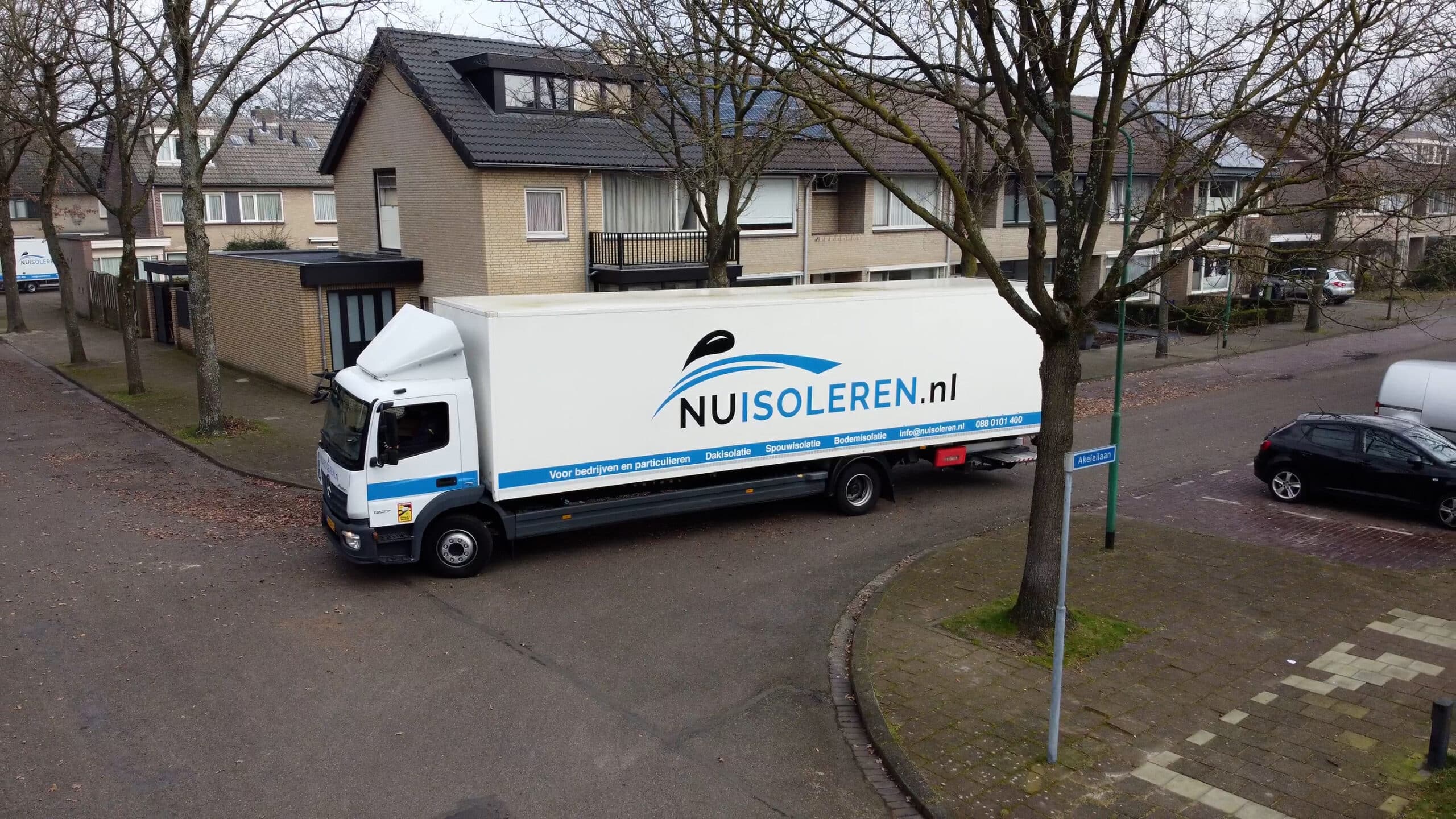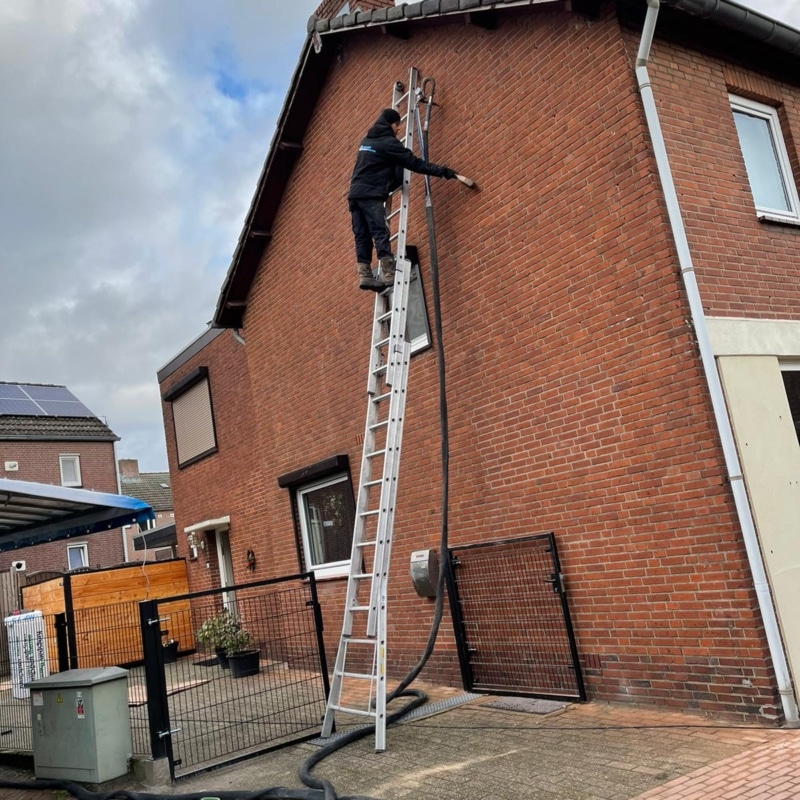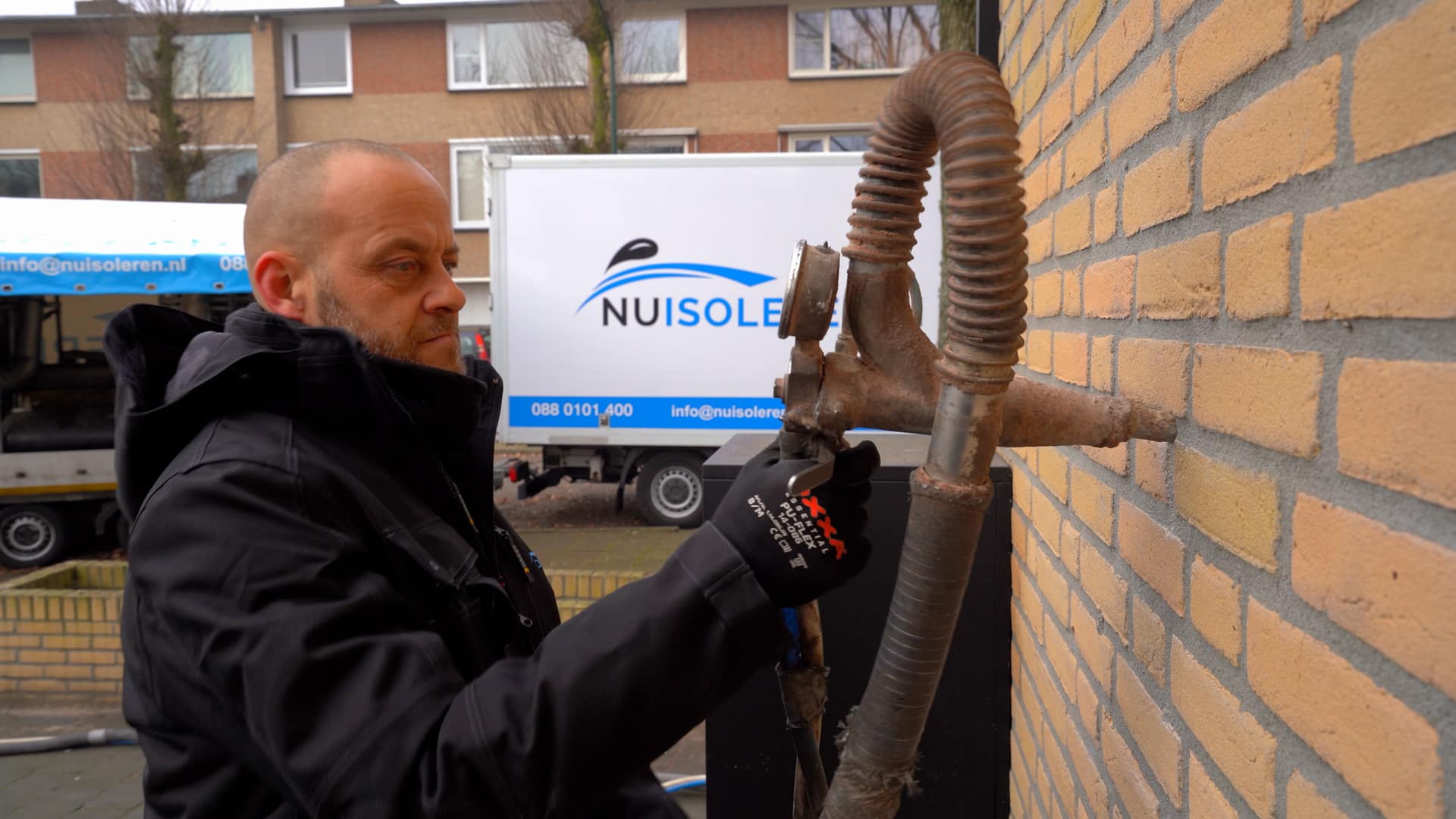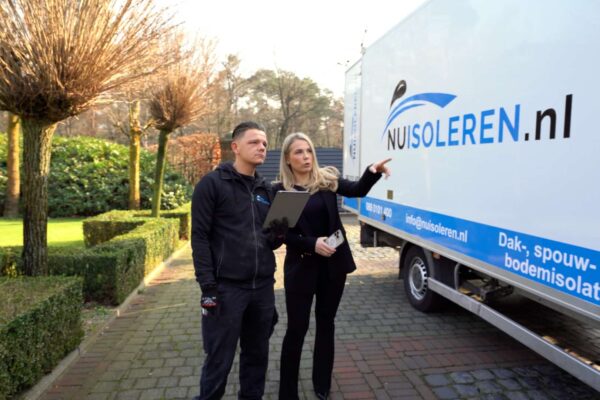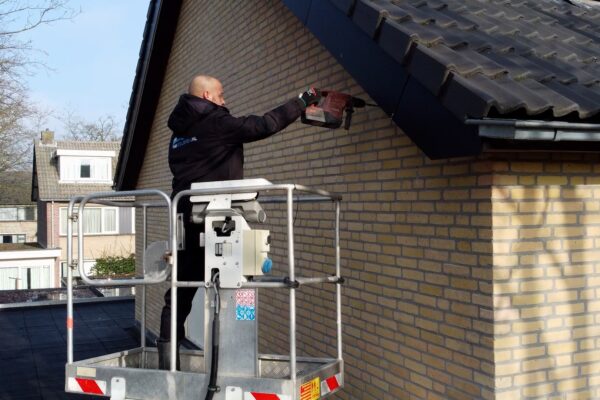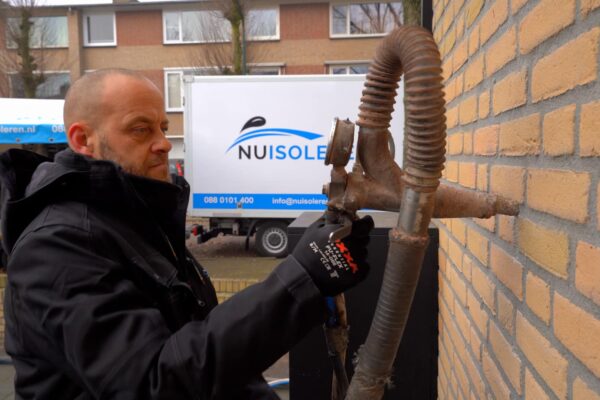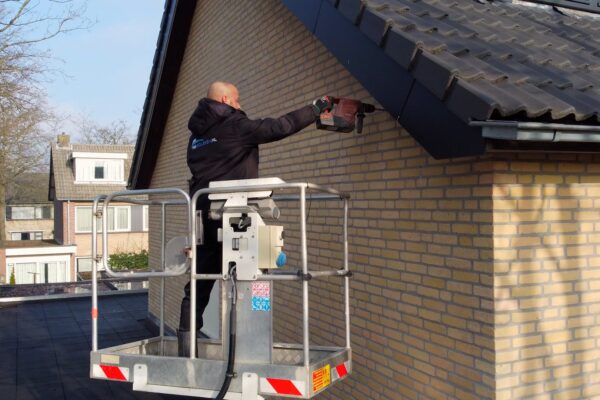Cavity wall insulation is one of Nu Isoleren‘s specialties. Based in Waalre, the Netherlands, we swiftly and efficiently provide high-quality cavity wall insulation for your home’s walls, even if insulation is already present!
Retrofitting cavity walls
Already have material in the cavity of your walls? No worries! If the current material in the wall isn’t up to par, we can assist you with bolstering your cavity wall insulation. Best of all, there’s no need to remove the old material, saving you from any disruption. Instead, we employ E-foam, an exceptional insulating material that effectively displaces the existing material.
Is your home suitable for cavity wall insulation?
To determine this, it’s crucial to ascertain the presence of a cavity wall. If your property has one, we can conduct an insulation assessment. Much depends on the construction year of your home.
Pre-1925 Construction
Before 1925, hardly any houses were built with cavity walls, making cavity wall insulation impossible. To confirm the presence of a cavity wall, measure the width of the wall at the front door. A width exceeding 25 cm indicates a cavity wall. Walls under 25 cm are single-skinned and do not have a cavity. In such cases, we can explore alternative insulation methods like external or internal wall insulation. We can also assess the benefits of floor or ground insulation, or roof insulation for your property.
1925–1975 Construction
Cavities are present but are typically narrow. Although cavity wall insulation might already be in place, it may be of inferior quality or deteriorated over time. We can conduct a complimentary insulation assessment to evaluate the condition of your cavity walls and insulation material. Based on our findings, we’ll advise you on cavity wall insulation or adding insulation to your cavity walls.
1975–1993 Construction
From 1975, cavity wall insulation became standard in construction. However, until 1993, insulation material quality standards were not stringent, often necessitating retrofitting.
Post-1993 Construction
After 1993, cavity wall insulation standards significantly improved, making retrofitting of the insulation unnecessary in most cases.
Why should you invest in cavity wall insulation?
The ever-increasing energy prices are the primary motivation for homeowners to insulate their cavity walls, resulting in substantial heating cost savings. When a cavity wall is either uninsulated or inadequately insulated, this measure proves highly cost-effective. Cavity wall insulation is a straightforward, swift, and relatively inexpensive way to save energy. But the benefits don’t end there. In brief:
- Energy Savings: Reduced reliance on heating systems drastically lowers energy bills.
- Improved Comfort: Cavity wall insulation evenly distributes heat, minimizing drafts and cold spots.
- Summer Cooling: It keeps homes comfortable in summer by preventing warm air ingress.
- Environmental Benefits: Less CO2 emissions help create a greener environment. Under specific conditions, cavity wall insulation qualifies for government subsidies, offering up to 30% reimbursement on your investment.
- Property Value: A more energy-efficient home enhances its value, reflected in an improved energy label.
Energy label C obligation
Do you own an office building that doesn’t yet meet the Energy Label C obligation, enforced since January 1, 2023? Cavity wall insulation offers a swift solution to make your building more sustainable and comply with the new standards.
Does cavity wall insulation make sense for your home?
If your home’s cavity lacks or has inadequate insulation material, cavity wall insulation is almost always a wise investment. While the savings for a terraced house may be slightly lower annually compared to a corner house or detached property, they are still considerable. Moreover, due to the lesser wall area, the cost of work is also lower, resulting in a quick return on investment.
Cavity wall insulation and bats
Currently, there is some uncertainty regarding cavity wall insulation and its impact on protected species like bats. Nevertheless, we can continue our sustainable housing initiatives in a modified manner. Nu Isoleren is committed to safeguarding bat habitats, ensuring that we don’t insulate cavities where these protected animals reside. Measures we can take include using bat packages. These consist of a bat box and two bat deterrents. These emit an ultrasonic sound at a frequency that is not well tolerated by bats.
Cavity wall insulation: our process
In the absence of bats in the cavity, we can usually complete cavity wall insulation within a day with minimal disruption. No walls need to be broken, even if residual cavity wall insulation is present. All work is conducted externally.
- We begin by drilling a series of small holes on the exterior of the cavity wall, typically at the intersections of the mortar joints, spaced approximately 80 cm apart. In harder-to-reach areas, such as near window frames, additional holes may be drilled.
- Next, we inject the insulation material through the holes.
- Once the entire cavity wall is filled, we neatly seal all holes with mortar matching the color of the existing joints. This ensures that no evidence of the work remains afterward.
Costs of cavity wall insulation
The average payback period for cavity wall insulation costs is approximately four years, but with fluctuating energy prices, this period could be even shorter. We offer competitive pricing and provide up to 25 years of warranty. Additionally, you may be eligible for subsidies, accelerating the payback process. With cavity wall insulation alone, you can receive up to 15% of the costs reimbursed. If you opt for an additional energy-saving measure, this reimbursement can increase to 30%.
Contact us
Looking for a reputable company for cavity wall insulation in Brabant? Nu Isoleren combines competitive pricing with exceptional service. We’ve assisted many satisfied customers in and around Tilburg, Eindhoven, Veldhoven, Best, Den Bosch, and Breda. Whether you’re in Limburg seeking cavity wall insulation services, we’re here to help! For more information on cavity wall insulation, adding insulation, or to request an insulation assessment, contact us today for a complimentary consultation.

